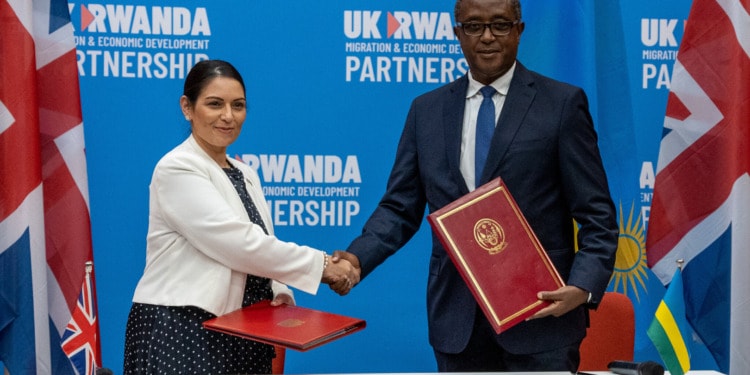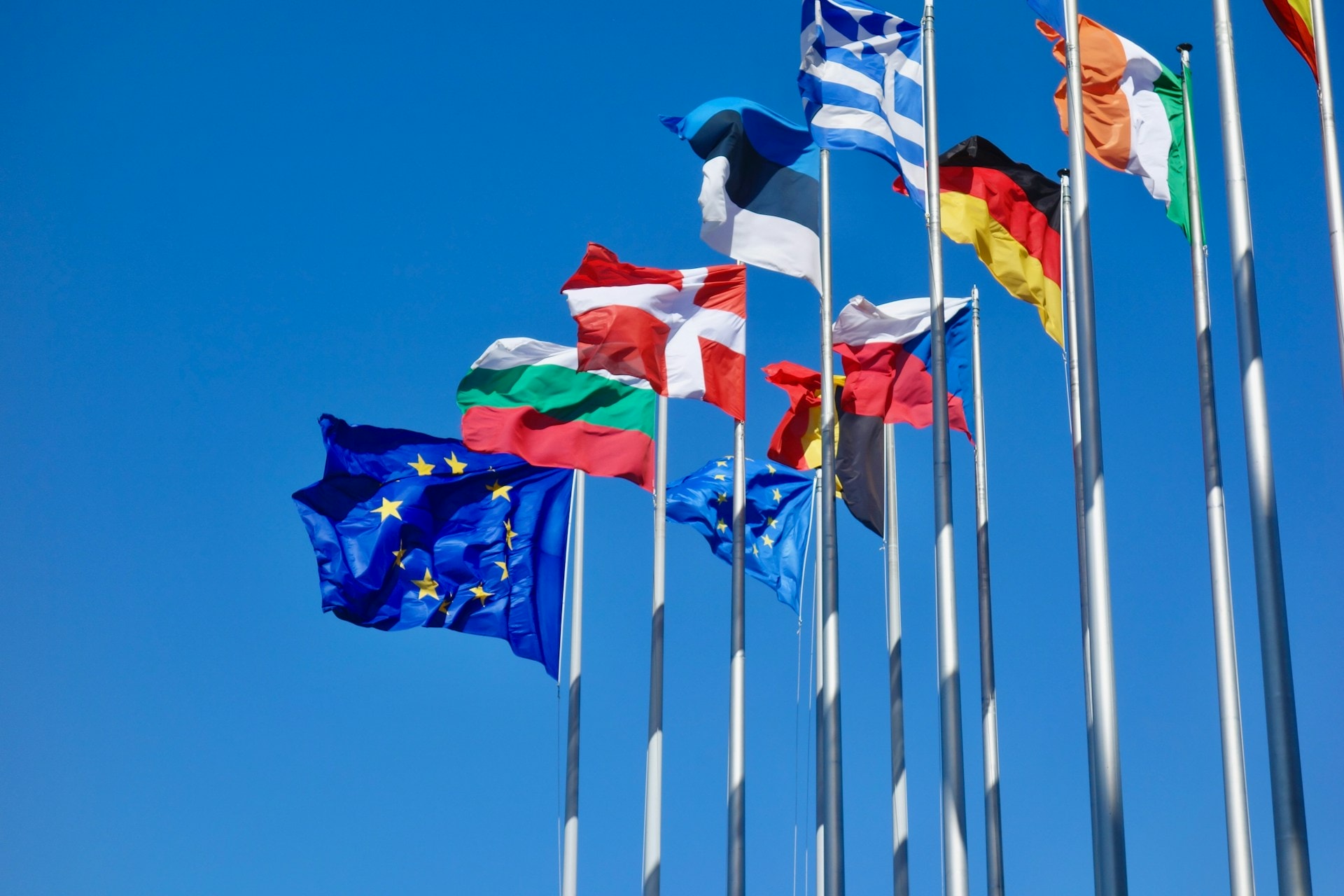On Tuesday, a last-ditch legal challenge issued by the European Court of Human Rights (ECHR) grounded a flight scheduled to deport asylum seekers from Britain to Rwanda, dealing a significant blow to the UK’s new and highly controversial immigration policy.
The Strasbourg Human Rights Court granted the urgent interim measure under Rule 39 of the Rules of Court, which empowers it to give one such order to any State Party to the European Convention on Human Rights.
Despite leaving the European Union in 2016, Britain remains a member of the Council of Europe as well as a signatory to the European Convention on Human Rights. As an institution, the EHCR is independent of the European Union, meaning that Brexit does not affect Britain’s accountability to the Human Rights Court.
Interim measure granted in case concerning asylum-seeker’s imminent removal from the UK to Rwandahttps://t.co/7WkVG5G6nv#ECHR #CEDH #ECHRpress pic.twitter.com/EMCU94lIQE
— ECHR CEDH (@ECHR_CEDH) June 14, 2022
The EHCR ruling acknowledged that the UK’s plan to process and settle asylum seekers in Rwanda put the applicants at “a real risk of irreversible harm,” subsequently violating the refugees’ Convention rights.
They said the Home Office should not fly any asylum seeker to Rwanda until the UK’s domestic courts issue their final decision on the legality of the new policy, following its judicial review scheduled for next month.
In April this year, the UK government entered into an agreement with Rwanda which enables the deportation of any adult refugee entering the UK illegally to the Central African country. There, the measure says, asylum seekers will settle while the UK Government considers their asylum claims. In return, Britain would pay Rwanda £120 million for economic development programs.
According to the Conservative government, their hard-line policy is primarily targeted at the people-smuggling business, which they say is responsible for the death of asylum seekers in the English Channel, an arm of the Atlantic Ocean separating the northern coast of France from southern England. Through the Strait of Dover at its northeastern end, the English Channel also links to the southern part of the North Sea, making it the busiest shipping area in the world and a particularly dangerous route for a small, badly made, and often overcrowded boat.
In November last year, at least 27 people, including one pregnant woman and three children, drowned in the Channel as they attempted to make the crossing. Overall, in 2021, more than 25,700 people attempted to reach the UK from France by boat – three times the 2020 rate. In 2021, at least 150 people died crossing the Channel, but charities warned the number could be far higher due to the challenges of collecting data.
The British government contends the solution is to try and deter asylum seekers from making the journey at all.
The agreement was met with outrage from the opposition, the majority of the public, religious figures, and even from Prince Charles, the heir to the throne. Critics accuse the government of pushing an unworkable and inhumane policy for the sake of looking tough on those seeking to enter Britain illegally, fulfilling, at least in appearance, the Brexit campaign promise to “take back control” of the country’s borders.
They also denounced the aggressive implementation of the policy as an attempt from Prime Minister Boris Johnson to save his face after weeks of bad press over the Partygate scandal, and his narrow escape from a no-confidence motion last week.
Home Secretary Priti Patel called the intervention of the EHCR “disappointing and surprising given the repeated and considered judgments to the contrary in our domestic courts.”
“We remain committed to this policy,” she added in her statement to the Parliament on Wednesday. “We believe that we are fully compliant with our domestic and international obligations, and preparations for our future flights and the next flights have already begun.”
The migration policy is set for a judicial hearing next month, during which the UK’s domestic courts will determine whether it is legal. But last week, a first legal challenge against the policy in a domestic court fell through as a UK High Court judge ruled that the government was allowed to begin implementing deportations, even though the judicial review has not yet happened.
How did the ECHR stop the plane’s departure?
The Human Rights Court ruling issued on Tuesday prohibited the deportation of three of the seven asylum seekers who were put on the Boing 767 aircraft chartered for £500,000 to fly to Rwanda..
One of them, a 54-year-old Iraqi refugee, claimed asylum in Britain on May 17 after crossing the Channel on a boat. On June 6, he was notified that his asylum claim had been deemed inadmissible and that he would be sent to Rwanda despite a medical record indicating that he had likely been a victim of torture.
The Human Rights Court stated the UK Government’s immigration policy put those asylum applicants at “a real risk of irreversible harm” by sending them to Rwanda. The Court specifically expressed concern over asylum seekers “not [having] access to fair and efficient procedures for the determination of refugee status” in Rwanda.
Highlighting the fact that Rwanda has not ratified the European Convention on Human Rights and is therefore not bound to respect it, the Court also found the UK’s decision to treat Rwanda as “a safe third country” for the proceeding and settlement of refugees “irrational or based on insufficient enquiry.”
The Central African country is known for its questionable human rights record, which raised concerns in the UK as recently as last year, and is currently involved in a dramatically escalating conflict with its neighbour, the Democratic Republic of Congo.
Two days ago, a top Congolese military official said to thousands protesting against the capture of a nearby town by rebels, that if Rwanda wants war, “it will get war.”
Finally, the ECHR pointed to the “absence of any legally enforceable mechanism for the applicant’s return to the United Kingdom” in case his or her asylum claim winds up successful.
Related articles: “Plain Wrong and Racist”: Britain’s New Migration Plans | UK’s Ukrainian Refugee Schemes “Actively” Exacerbate Human Trafficking Risks, New Research Shows
UK Government vows to press ahead and speaks of withdrawing from the ECHR
This significant blow to the UK’s migration policy was met with relief on part of human rights activists and asylum seekers – but members of the Conservative party interpreted the intervention as an attack on Britain’s sovereignty, and a sign the country should sever all ties with Strasbourg by withdrawing from the ECHR.
“The idea that a European court has blocked the intention of the UK parliament will be a huge help to the government,” said one Conservative MP to a reporter for Politico.
“Will it be necessary to change some laws to help us as we go along?” said Johnson. “It may very well be, and all these options are under constant review.”
Some Conservative MPs consider the withdrawal from the ECHR as the final step towards total independence from European political processes and are pushing for a human rights law shake-up through a British Bill of Rights.
The idea of a new rights convention which would reinforce the supremacy of the UK Supreme Court has been circulating since David Cameron’s premiership but had never been enacted.
In this year’s Queen’s Speech, Boris Johnson pledged this would change, and a Whitehall official confirmed that work on one such bill had “ramped up” over the last month. In March, a consultation was launched which stated the UK Government intends to include a provision “that affirms parliamentary sovereignty in the exercise of the legislative function, in the context of adverse Strasbourg rulings.”
Critics in Westminster say Boris Johnson’s aggressivity toward the ECHR is just the continuation of a general political rationale aimed at appealing to a conservative and pro-Brexit electorate.
Yet, some say Johnson’s pastiche of Trumpist politics is starting to flag: “If we say we’re going to do something and we can’t do it, at some point, people do start to think you’re incompetent,” said an ex-minister.
“It’s not in the public’s interest, it’s just in their political interest”
This Wednesday, Ivette Cooper, who speaks for the opposition Labour Party on Home affairs, castigated Priti Patel for pushing a bill she “knows” is “unworkable, unethical, and won’t stop the criminal gangs” nor the asylum seekers from crossing the Channel.
On the day the inaugural deportation flight was due, at least 260 asylum seekers arrived in Dover. A Sky News journalist recounted asking them if they knew they could be deported to Rwanda. Apart from one person who shouted, “No Rwanda,” the journalist said that the others “didn’t even appear to know” what he was talking about.
“It kind of flies in the face of this government assertion we’ve been hearing that this policy will deter people making that crossing. It doesn’t seem to be the case.”
In her intervention in Parliament yesterday, Yvette Cooper also pointed to the cost of the Rwanda scheme and of its (failed) implementation, with a plane chartered for £500,000 which ended up grounded, and a £120 million cheque to Rwanda “with a promise of more to come.” The lengthening bill makes it difficult for the Conservative party to claim the scheme will benefit the British population in the long term.
“This isn’t a long-term plan; it is a short-term stunt,” said Cooper. “Everyone can see it. It’s not serious policy, it’s shameless posturing and she [Priti Patel] knows it. It’s not building consensus, it’s just pursuing division, it is government by gimmick. It’s not in the public interest, it is in their [the Conservatives] political interest.”
A recent JL Partners poll revealed that 45% of the British public are opposed to the Rwanda migration scheme, with 35% supporting and half the country believing the current plan is “unworkable.”
Regardless of the ECHR ordering that no flight to Rwanda will happen before the domestic courts provide a decision on the legality of the scheme, the UK Government has made it clear it is actively working towards implementing the deportation of asylum seekers to Rwanda.
But the government’s bravado cannot hide the fact that the ECHR legal challenge has started and will have to run its course, which could take until after the end of 2022. In the meantime, ministers aren’t expecting to book another flight. One wonders if, instead, they will try and recoup the £500,000 from the Boeing 767 that never took off.
Editor’s Note: The opinions expressed here by Impakter.com columnists are their own, not those of Impakter.com — In the Featured Photo: Home Secretary Priti Patel and Minister Biruta sign the migration and economic development partnership between the UK and Rwanda. Featured Photo Credit: UK Home Office/Flickr.













